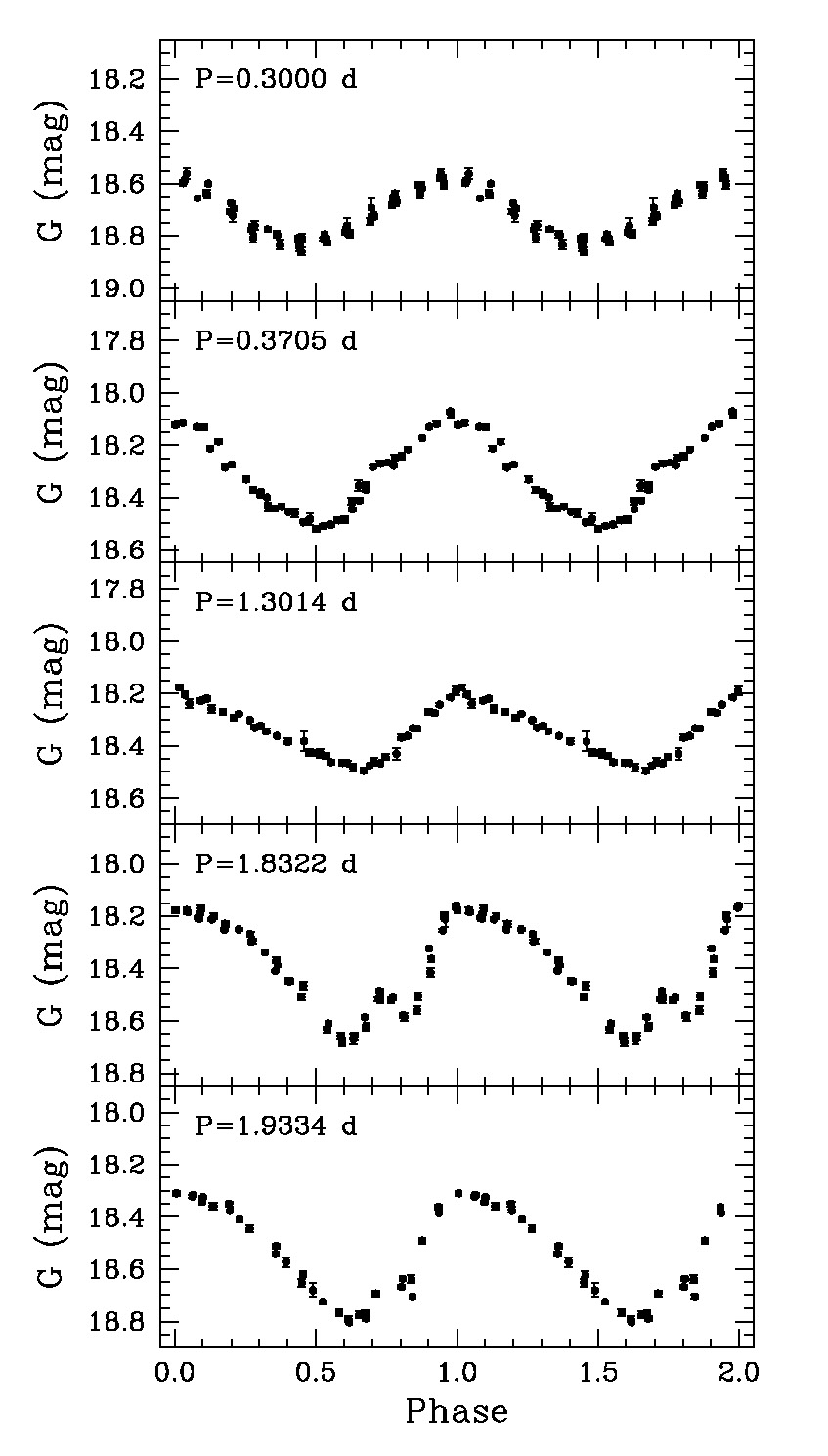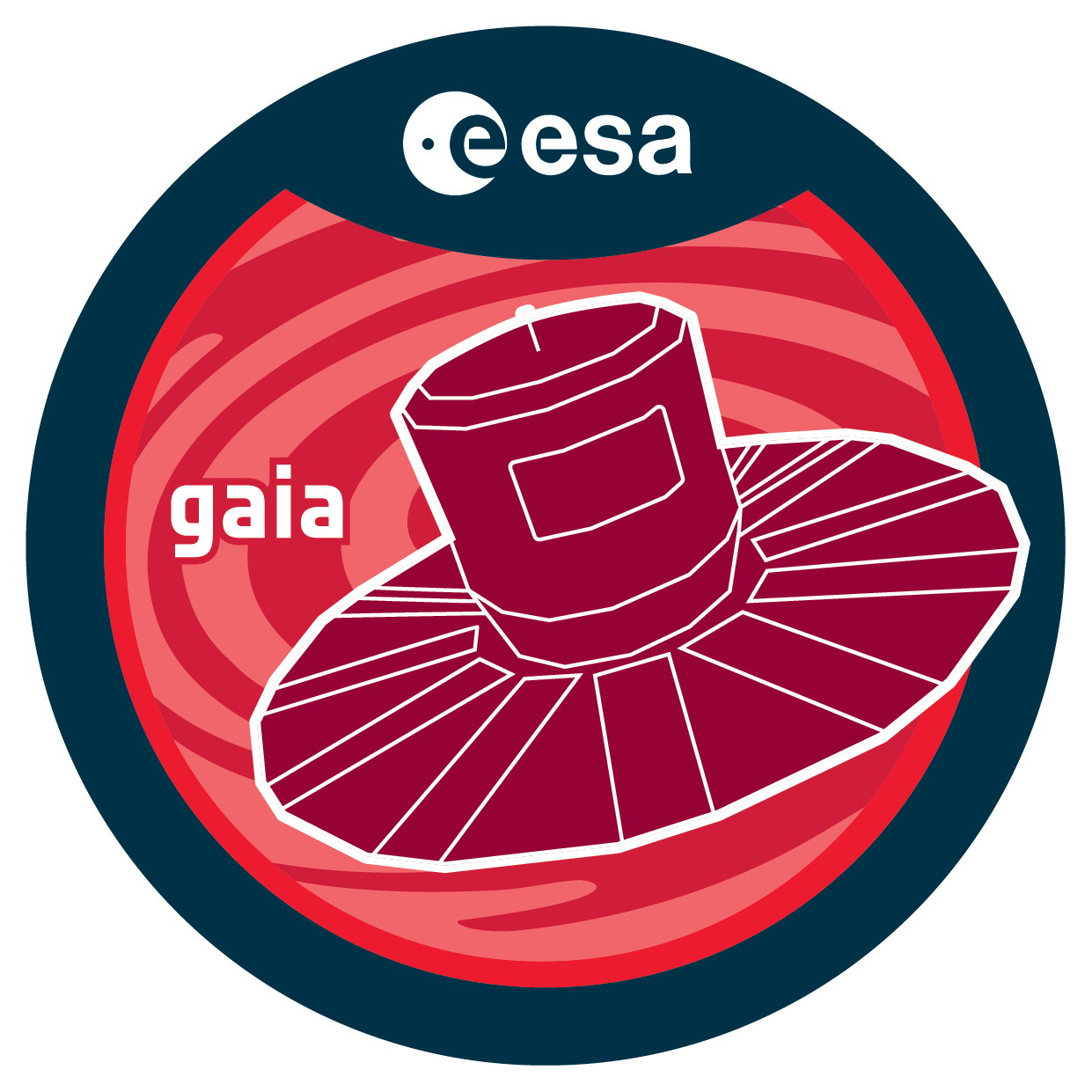IoW_20150528 - Gaia
Image of the Week |
|||
Short period/faint magnitude Cepheids in the Large Magellanic Cloud observed by Gaia |
|||
 |
|||
| G-band light curves of short period/faint Cepheids in the Large Magellanic Cloud observed by Gaia during 28 days of EPSL and 3 days of NSL, processed through the full chain of the CU7 pipeline. The light curves were folded according to the periods derived by the CU7 Cepheid&RR Lyrae SOS pipeline. A few (1-3) observations with estimated uncertainties larger than 0.05 mag were excluded from the plots. Median uncertainties of the measurements are around 10-15 mmag. All light curves cover 2 pulsation cycles. | |||
|
In December 2014 a first reduction of the photometry acquired by Gaia during 28 days of Ecliptic Pole Scanning Law (EPSL) and 3 days of Nominal Scanning Law (NSL) was delivered to CU7, the Coordination Unit in charge of performing the analysis of the variable sources observed by Gaia. In the week of 19-25 March 2015, the full chain of the CU7 pipeline ran on the EPSL+NSL dataset (about 800,000 sources which have more than 20 Field-of-View transits), starting from the general Variability Detection, general Characterization, proceeding through the global Classification and ending with the detailed checks and typecasting of the Specific Objects Study (SOS). The time-series photometry of 1242 sources in the South Ecliptic Pole (SEP), which covers an external region of the Large Magellanic Cloud (LMC), was fed into the Cepheid&RR Lyrae SOS pipeline, which returned a rich harvest of LMC RR Lyrae stars (more than 800, including some hundreds of new discoveries, with typical average magnitudes around G~19.5 mag and periods in the range of about 0.15 to 1.0 days) and a few Cepheids at the short period/faint end of the LMC Cepheids period-luminosity distribution. Some of them are new Cepheids discovered by Gaia. These five faint Cepheids demonstrate the great potential of Gaia's photometry and the excellent performance of the CU7 pipeline.
[Published: 28/05/2015] |
|||
- Removed a total of (9) style text-align:center;
- Removed a total of (1) border attribute.
- Removed a total of (1) cellpadding attribute.
- Removed a total of (1) cellspacing attribute.
Image of the Week Archive
- Removed a total of (1) border attribute.
- Removed a total of (1) cellpadding attribute.
- Removed a total of (1) cellspacing attribute.








































 Sign in
Sign in
 Science & Technology
Science & Technology
